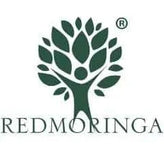Buongiorno Maria Grazia, è inutile che continui a lasciare recensioni. Ti abbiamo già spiegato che la prima spedizione è tornata indietro perchè non hai inserito il civico e non hai risposto nè a noi nè ad Amazon. In automatico quando vediamo una spedizione che torna indietro la re inviamo, e così è partita la seconda (ti abbiamo mandato i tracking). Neanche questa sono riusciti a consegnartela, per poi finalmente apprendere il tuo civico e creare una terza spedizione. Come ti abbiamo già scritto privatamente, per poterti consegnare l ordine, abbiamo sostenuto 3 costi di spedizione, 2 costi di rientro e 3 costi di logistica, per un errore non nostro. La terza spedizione è in consegna questa settimana, sperando che sia la volta buona (rispondi al telefono se il corriere ti chiama).
Buona Pasqua
Luca


